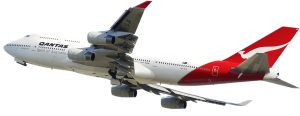 Amidst a heated battle with competitor Airbus, Boeing has posted strong earnings for the third quarter of 2017. Reports indicate the commercial airline company earned $1.85 billion, which is more than analysts were expecting. So, what does this mean for the future of Boeing?
Amidst a heated battle with competitor Airbus, Boeing has posted strong earnings for the third quarter of 2017. Reports indicate the commercial airline company earned $1.85 billion, which is more than analysts were expecting. So, what does this mean for the future of Boeing?
It’s safe to say that Boeing will end the year on a strong note. In the third quarter of 2017, the company delivered a record-setting 202 commercial airplanes to various airlines, both here in the Unites States and abroad. The total revenue generated from these deliveries is $24.31 billion. In comparison, market analysts were expected Boeing to earn roughly $23.9 billion during this same period.
However, some analysts are still skeptical of Boeing, citing a drop in net income from last year. Records show that Boeing’s net income dropped 20% from the year prior. This doesn’t necessarily mean that Boeing is struggling, however. Last year, Boeing received tax incentives that ultimately increased its net income. Those tax incentives are now gone, however, which is the driving force behind its lower earnings for Q3 2017.
While there’s still several months remaining in the year, Boeing predicts strong earnings to close out 2017. The company says its expects the value of its shares to range from $9.90 to $10.10, which is about $0.10 better than previous forecasts.
Of course, Boeing is working around the clock to remain an industry leading in the aviation market. Last month, the company announced plans to acquire Near Earth Autonomy. This U.S.-based company focuses specifically on autonomous flight technology, such as the technology used in drones. Boeing said this acquisition will allow it to explore new products and services for emerging markets.
There’s also some talk about Boeing experimenting with self-piloting technology. Google, Apple and other tech companies are working on self-driving cars. Boeing, however, is looking to use this technology in the skies. If successful, this could signal a major change for the commercial aviation industry. With airlines in desperate need of pilots, self-piloting planes could ease this burden while also reducing operational costs. Whether or not this technology turns into a reality, though, remains to be seen.
Furthermore, Boeing recently began production of its wide-body 777X jet. The twin-engine jet will feature a denser cabin than the 787 as well as new composite wings and wingtips. Although production is currently underway, however, the 777X isn’t expected to be operational until Q1 2019, during which it will take its first flight.



